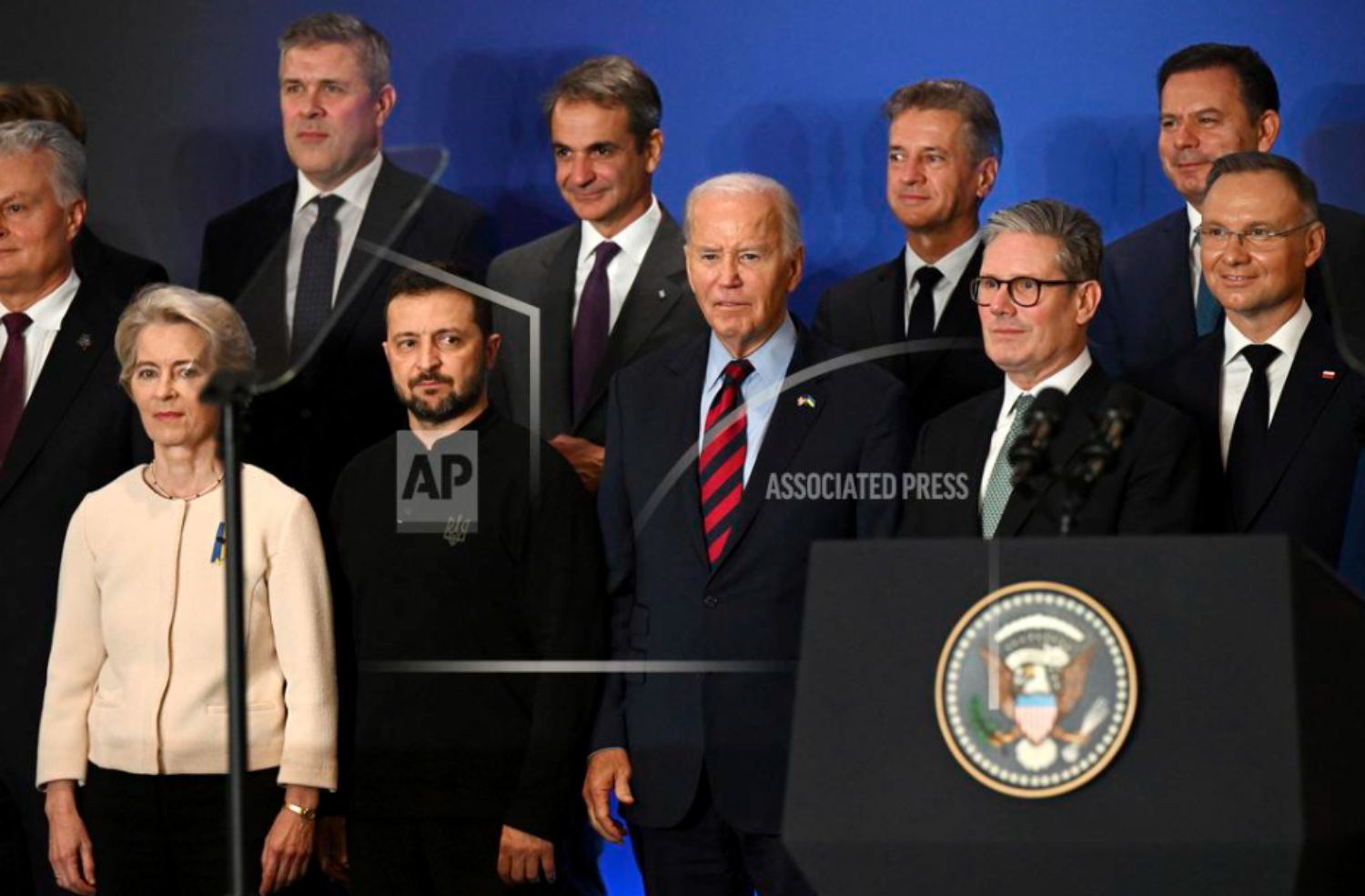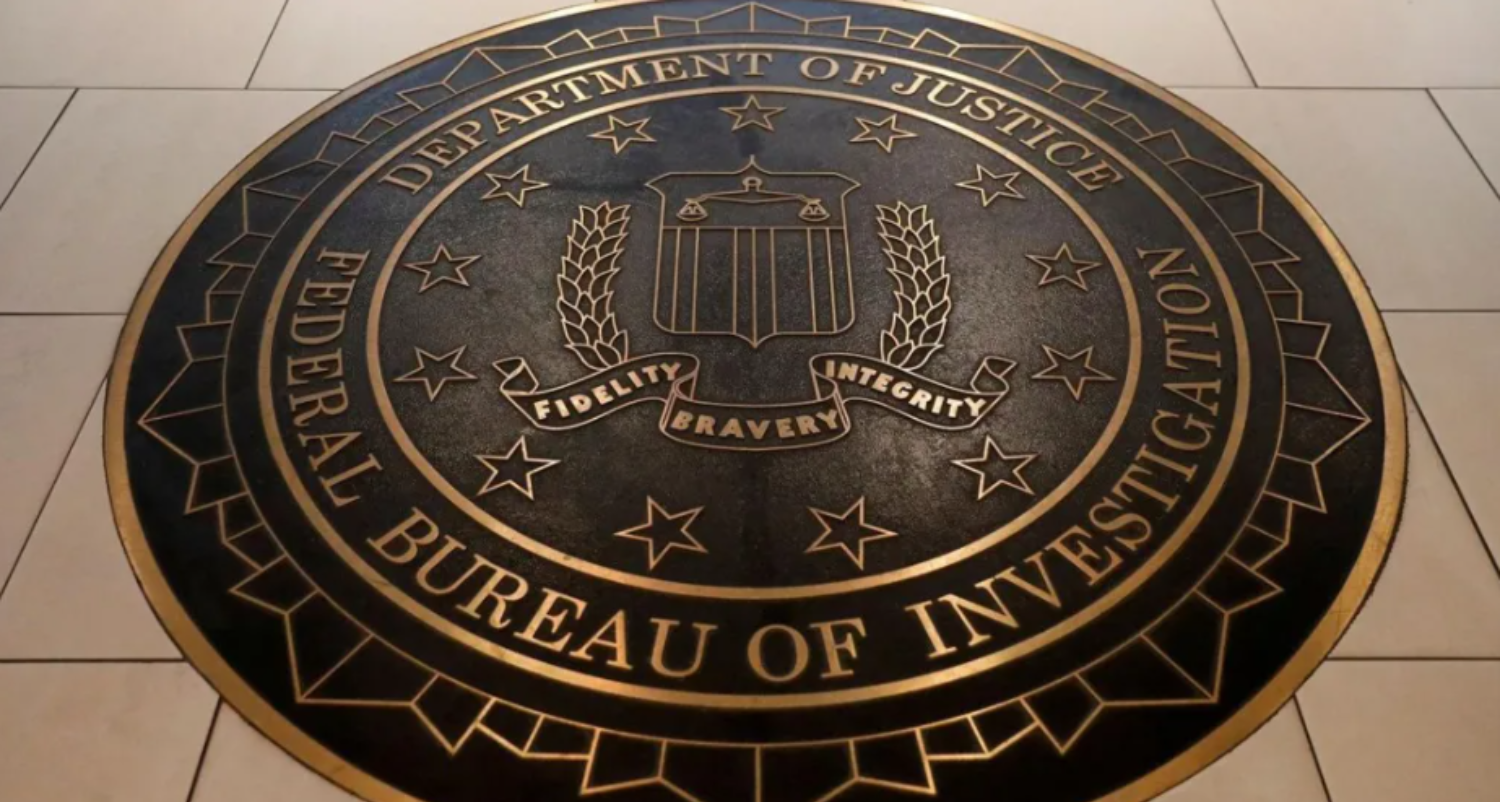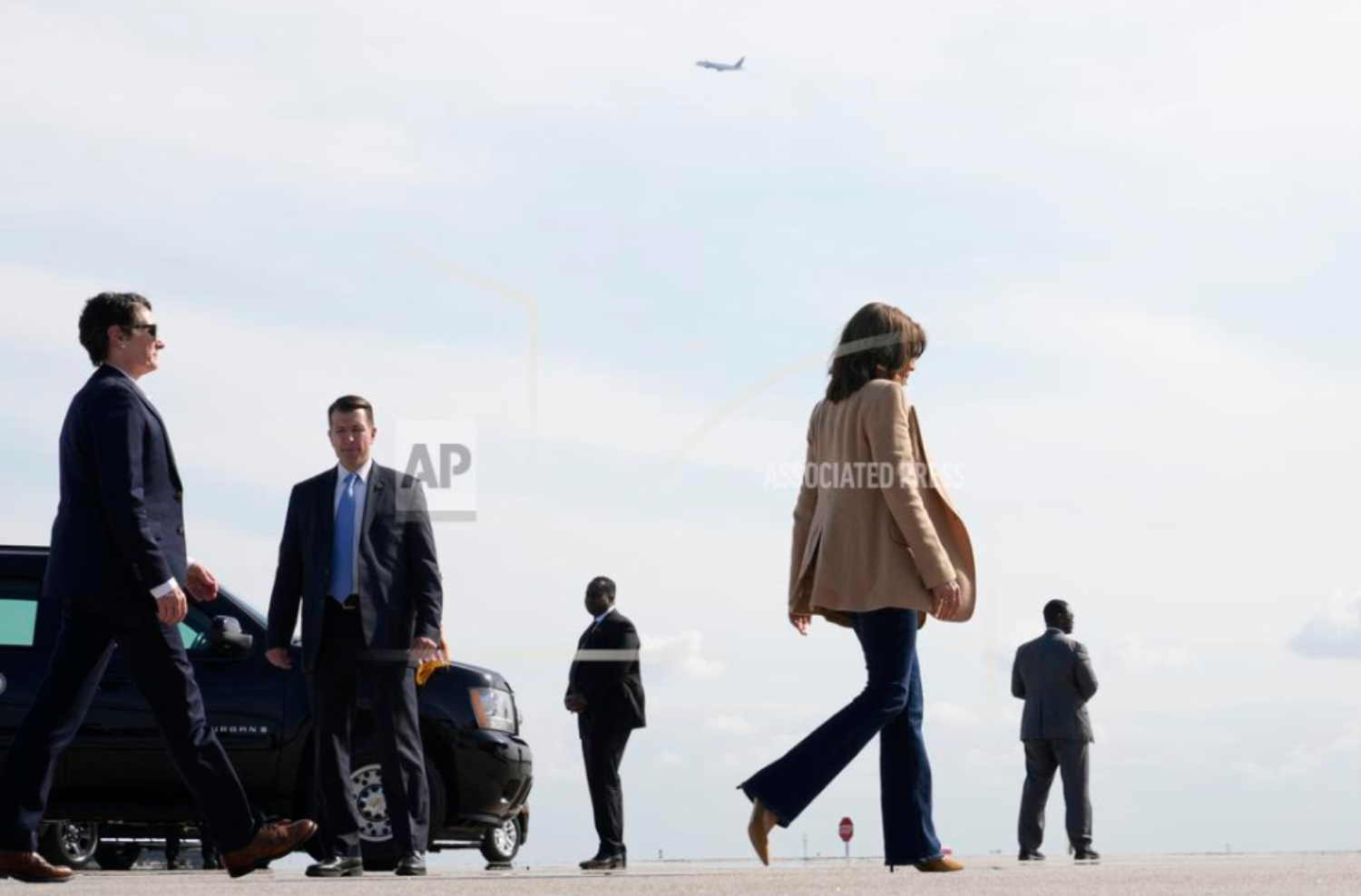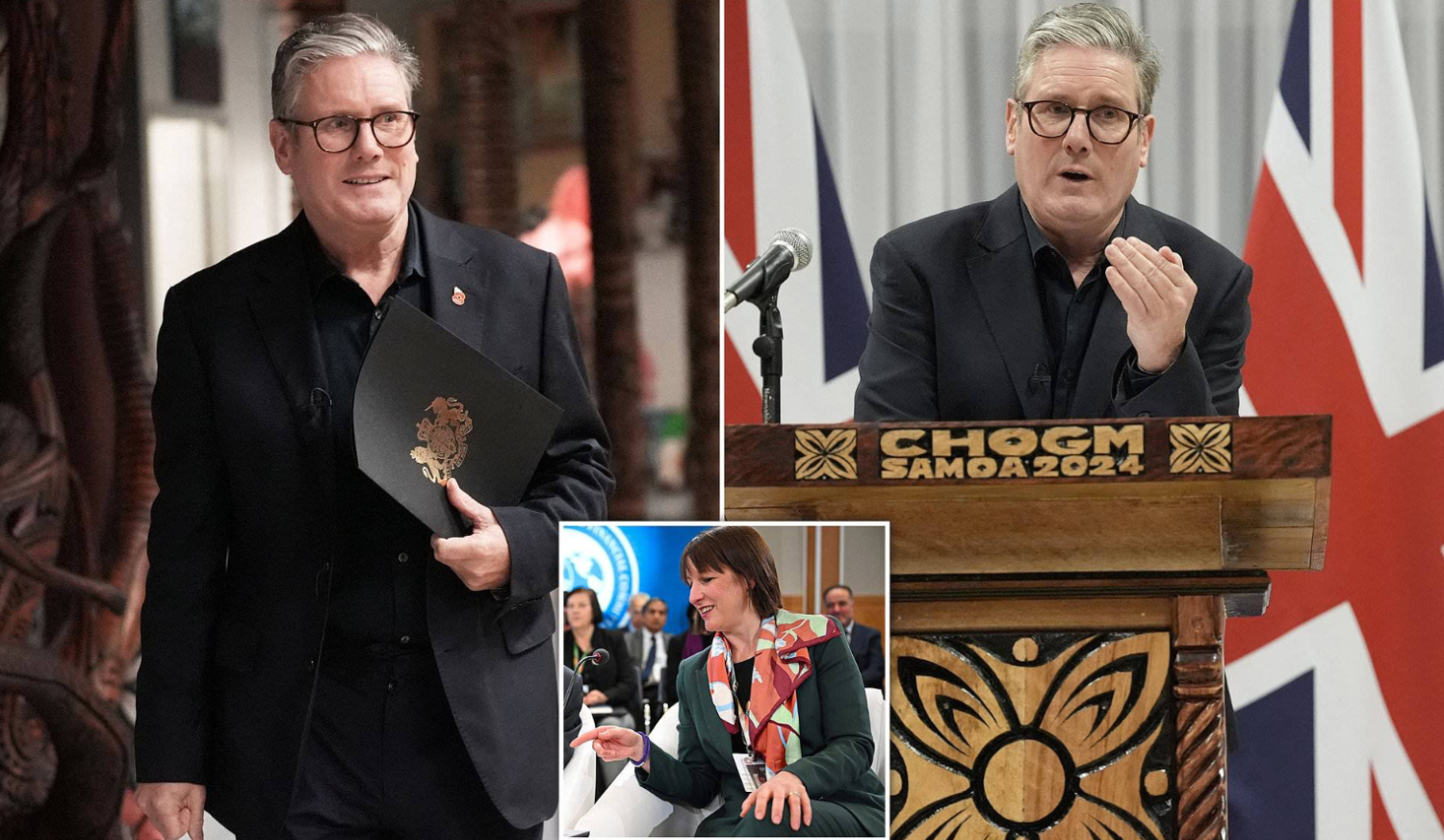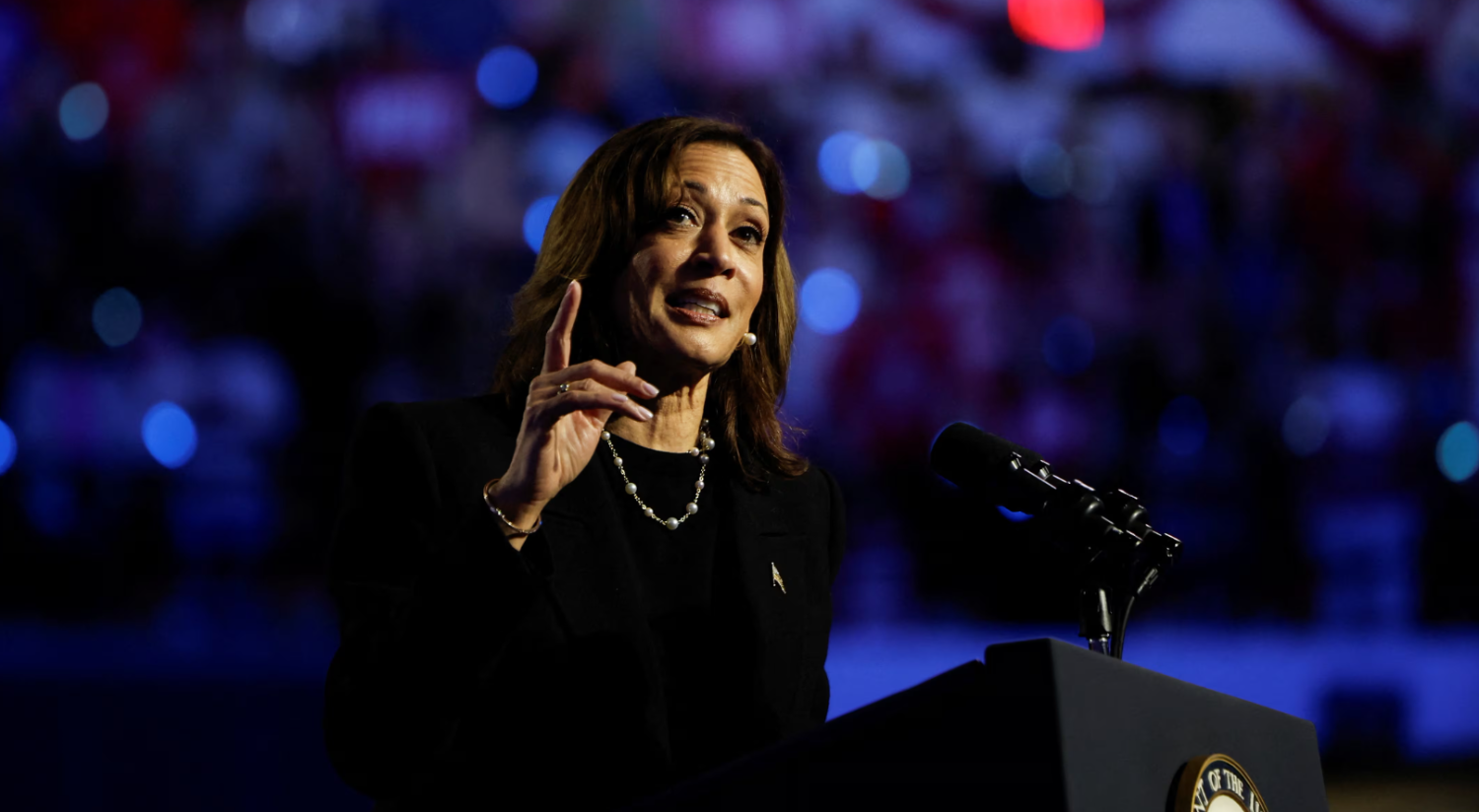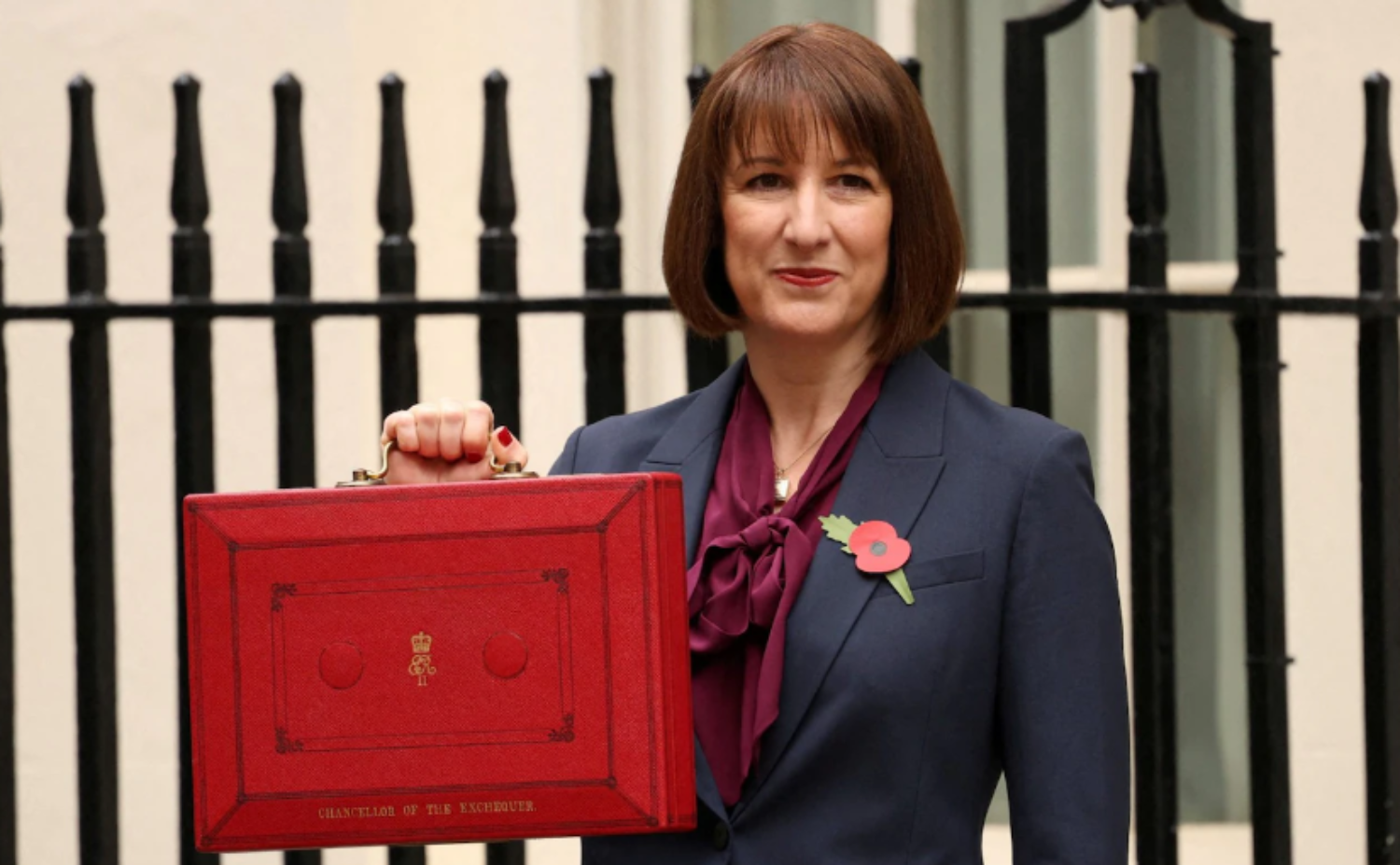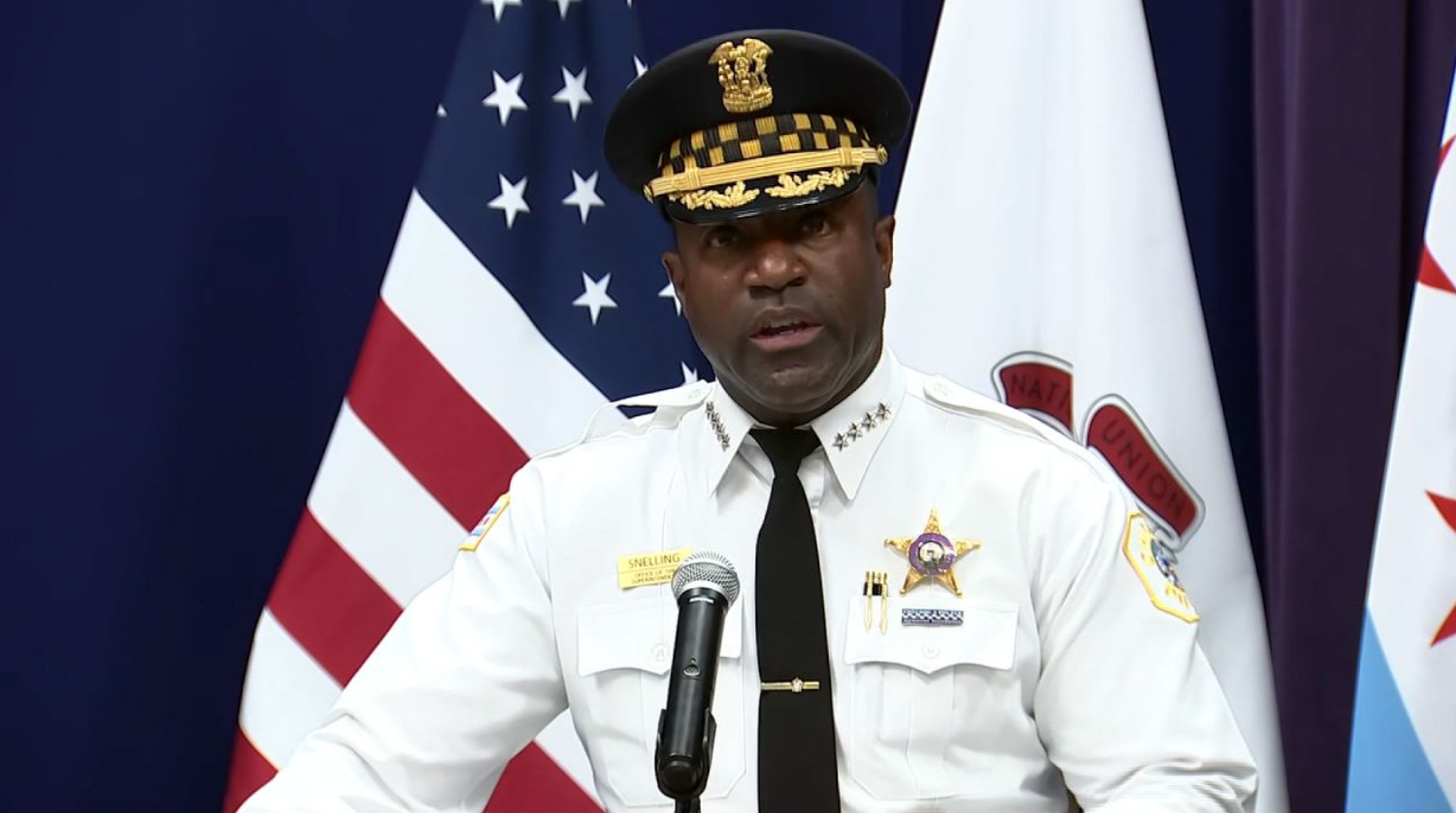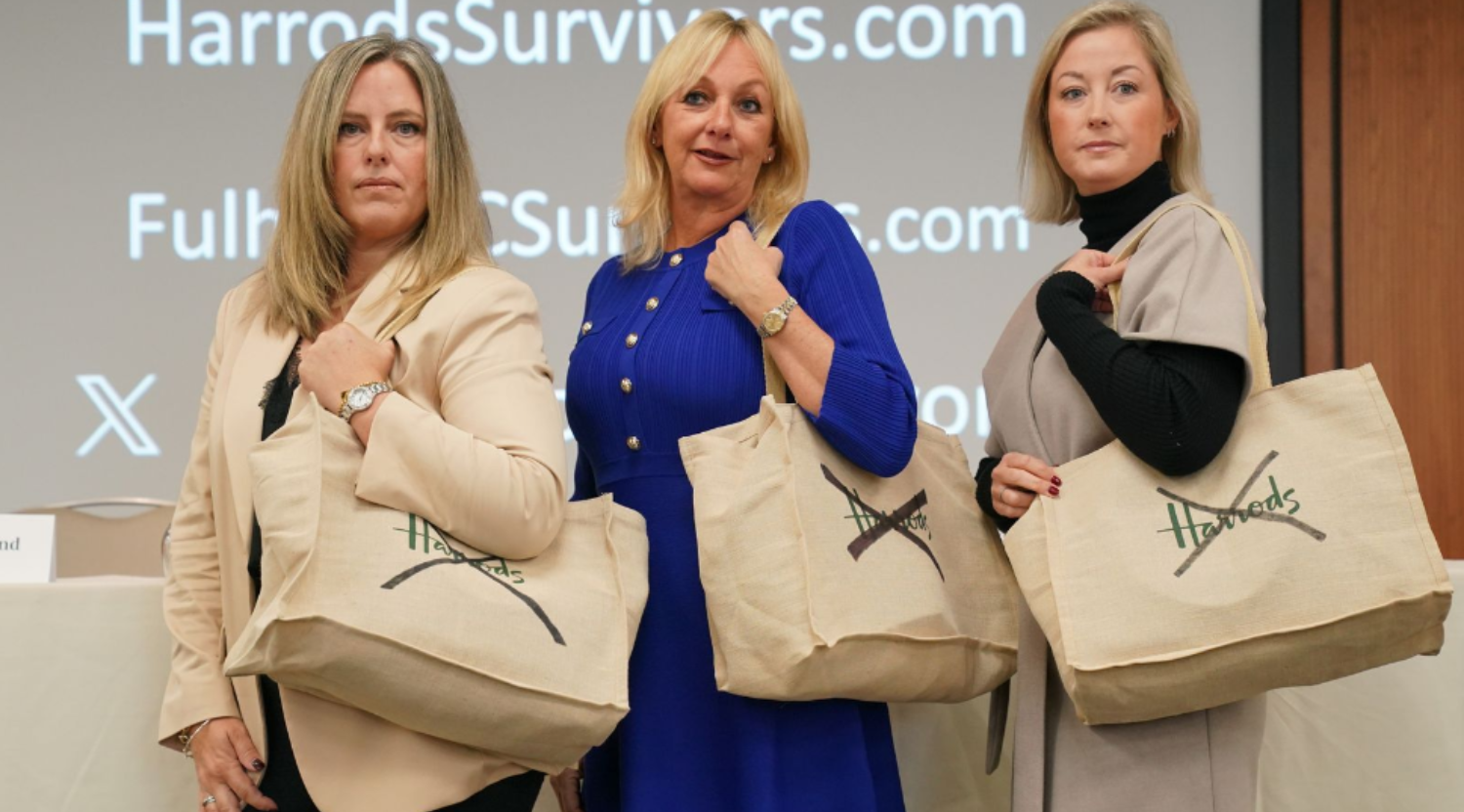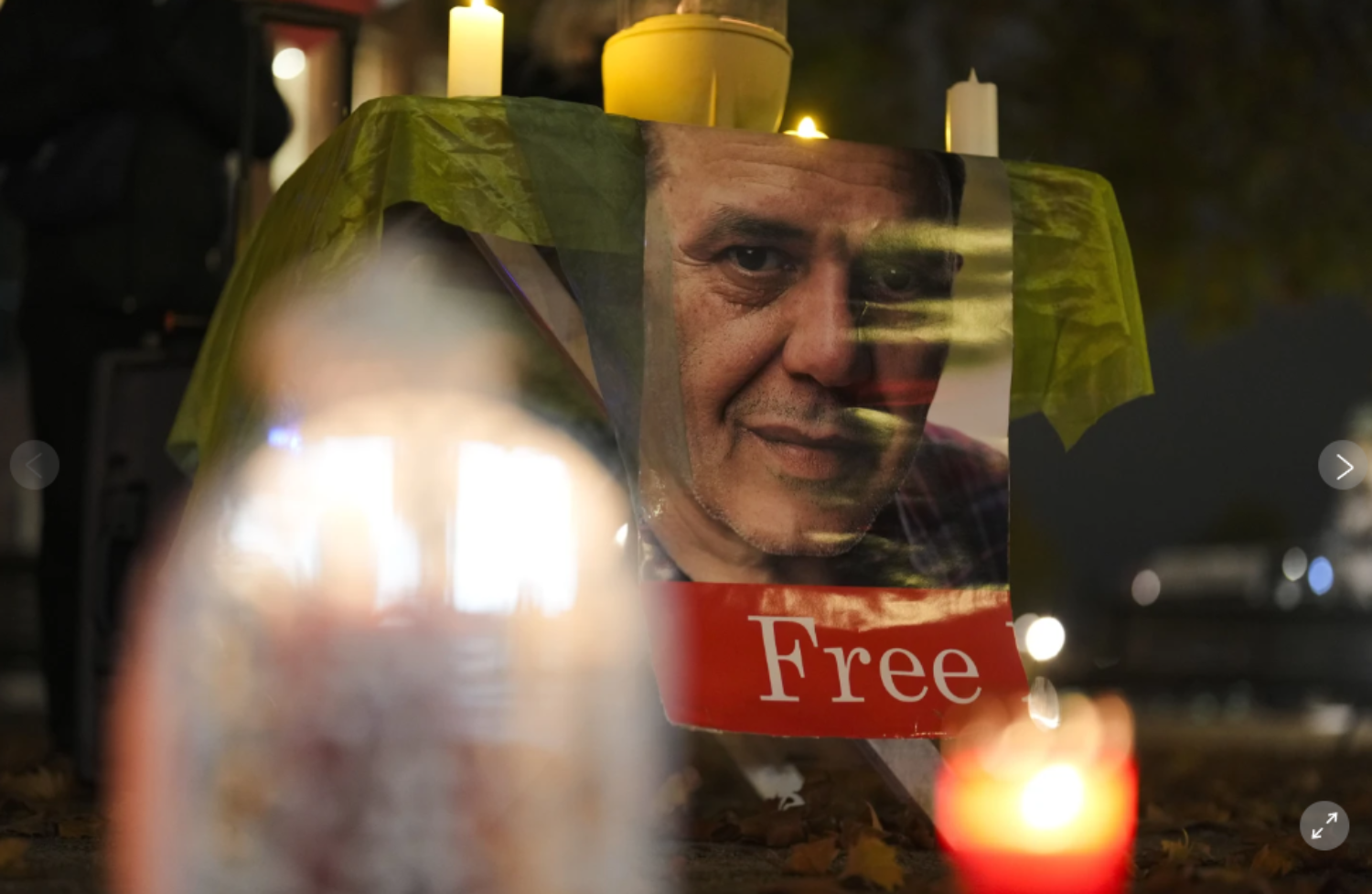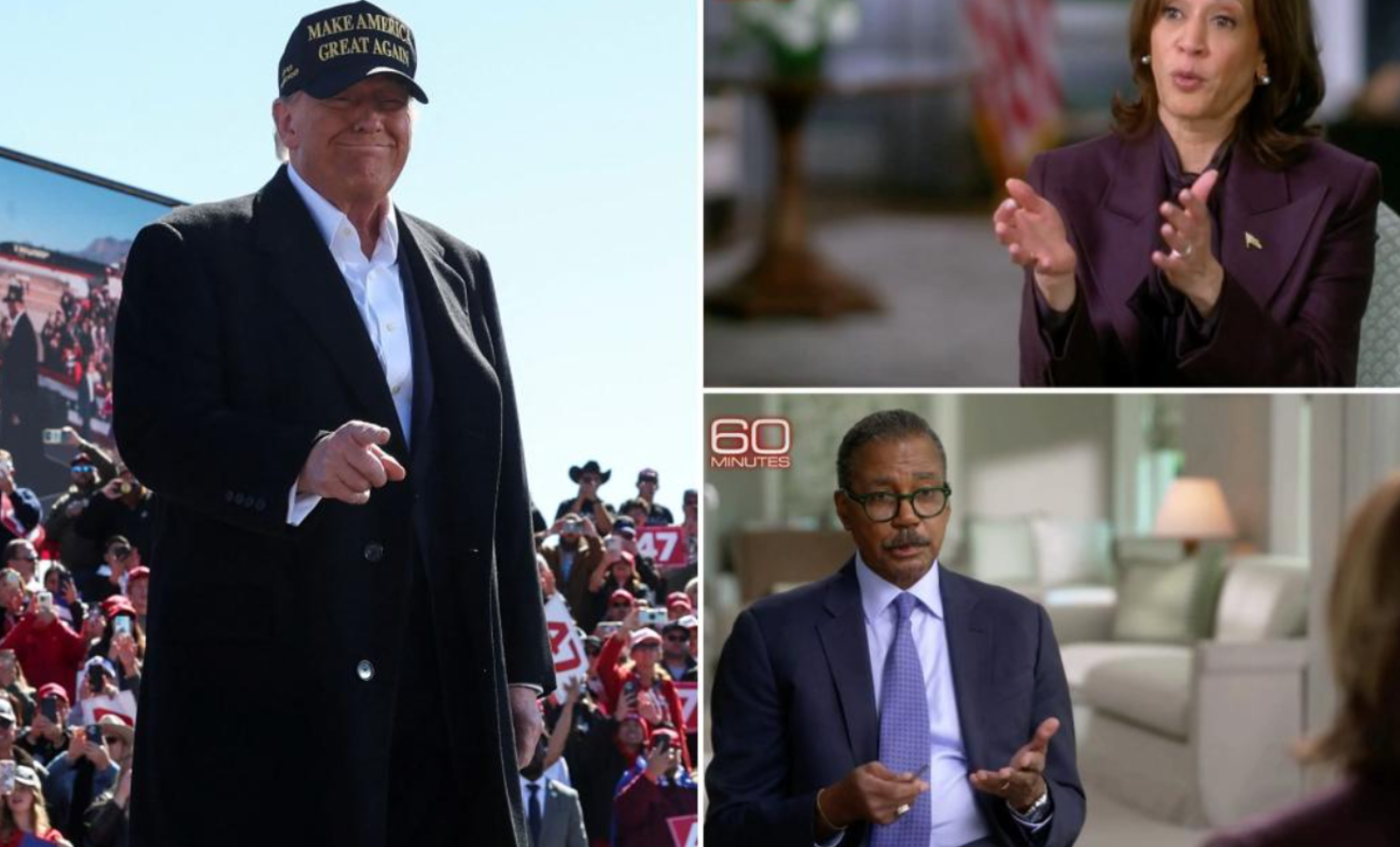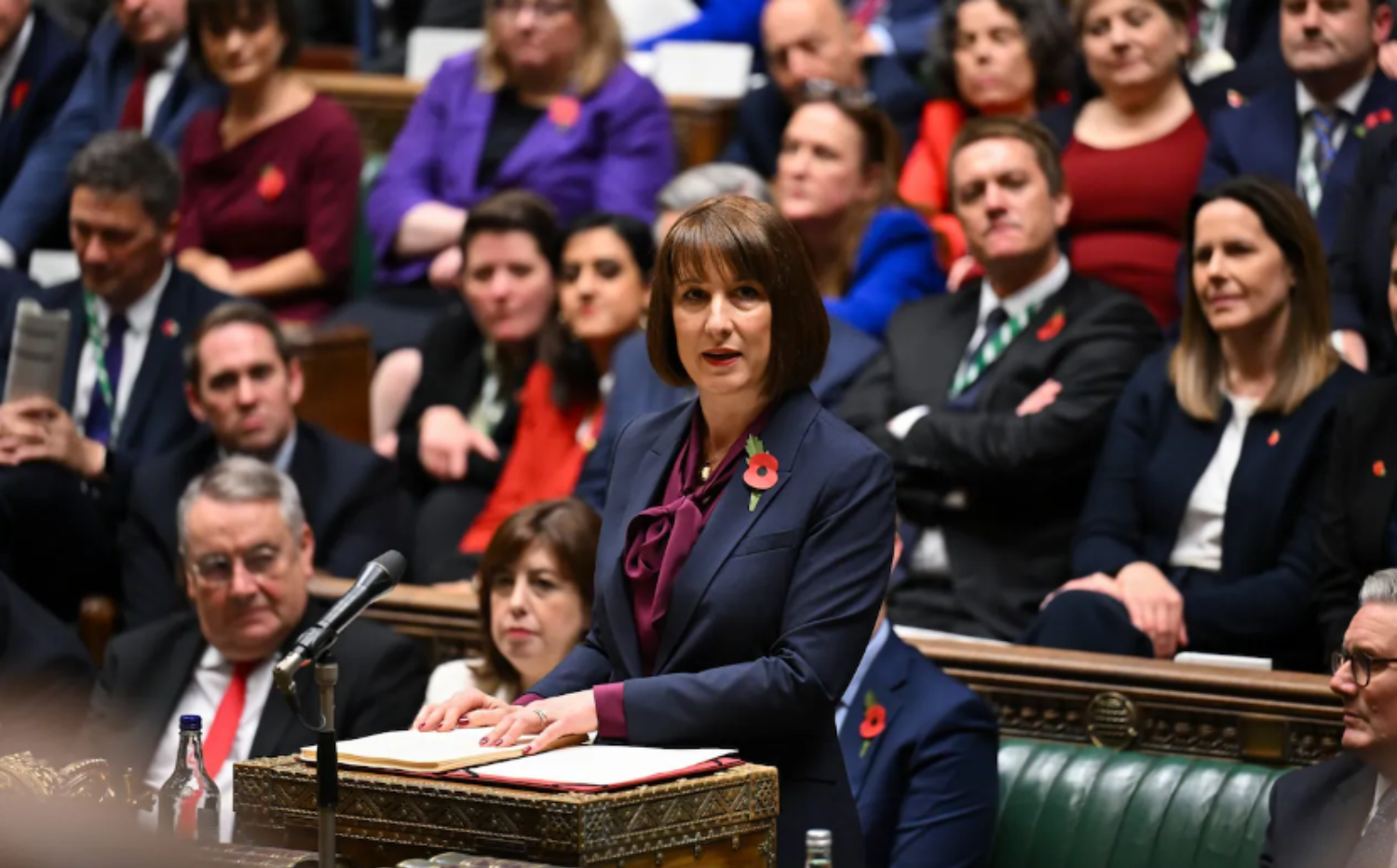-
Posts
10,100 -
Joined
-
Last visited
Content Type
Events
Forums
Downloads
Quizzes
Gallery
Blogs
Everything posted by Social Media
-
Ukrainian President Volodymyr Zelenskyy expressed disappointment on Wednesday over the leak of a confidential request for U.S.-made Tomahawk missiles, which was disclosed by the White House to the New York Times. This revelation adds tension to Ukraine's strategic partnership with the United States as it seeks critical military support against Russia. During an interview, Zelenskyy confirmed that Ukraine had formally requested Tomahawk long-range missiles from the U.S. government to aid in their defense efforts against Russia. The missiles, which have a range of up to 1,500 kilometers, would enable Ukraine to strike strategic targets well within Russian territory, a capability seen as essential in Ukraine’s "Victory Plan" against Russian forces. However, Zelenskyy voiced his displeasure with the White House’s decision to share details of this request with the media. "And this was confidential information between Ukraine and the White House," Zelenskyy remarked. "How should we understand these messages? So, it means between partners there’s nothing confidential?” he questioned, raising concerns about trust within the alliance. The New York Times reported that the Ukrainian request was met with skepticism by senior U.S. officials, who viewed the plan as unrealistic. These officials, speaking anonymously, explained that the American military was not prepared to commit the limited supply of Tomahawk missiles to Ukraine, as they were also factoring in potential requirements for other regions like the Middle East and Asia. Additionally, they noted that Ukraine’s list of intended targets was extensive and, according to their assessment, unlikely to sway the momentum of the war on the battlefield. Zelenskyy’s concerns were echoed by other high-ranking Ukrainian officials, who were also taken aback by the leak. Speaking to POLITICO, one Ukrainian official, granted anonymity to discuss the sensitive topic, defended the practicality of the Victory Plan and emphasized that it had undergone review by the U.S. military itself. “We know the plan is realistic. U.S. own military studied it and said it is realistic,” the official stated, expressing disappointment over the negative framing of the leaked information. The leak has prompted questions over whether sensitive negotiations and strategies between the United States and Ukraine can remain secure, especially as Kyiv relies heavily on Washington’s continued support in the fight against Russian forces. The leaked information has highlighted underlying differences in how each government views the utility of long-range strikes in the conflict. As Ukraine continues to seek international assistance, the breach of confidential discussions risks complicating the delicate diplomatic and military relationship between the two allies. Based on a report by Politico 2024-11-04
-
US intelligence officials have recently highlighted a suspected Russian disinformation effort involving a fake video of a man claiming to be a Haitian voter in Georgia. According to intelligence agencies, "Russian influence actors" were responsible for creating and spreading a fabricated 20-second clip that has been widely shared on social media, including the platform X. The video, which shows two men in a car identifying themselves as Haitian, features one individual claiming that he obtained U.S. citizenship within six months of arriving in the country and has since voted multiple times in Georgia counties such as Gwinnett and Fulton. He also encourages other Haitians to migrate to the United States. However, researchers at Clemson University have linked the video to a Russian disinformation campaign called Storm-1516, known for targeting the U.S. electoral process. Darren Linvill, a Clemson researcher, remarked, “This narrative is consistent with what we’ve seen from Storm-1516, especially in recent weeks since they’ve turned their focus squarely on the US election.” He cautioned against underestimating the impact of such operations, adding, “We should absolutely not be surprised that they are focused on undermining the integrity of the US election. This is consistent with Russian strategy over the last two election cycles." Linvill further explained that the "narrative focus, style, and production of the video" closely align with earlier content attributed to Storm-1516, which is reportedly linked to the Russian Foundation to Battle Injustice. This organization was founded by Yevgeny Prigozhin, the former head of the Wagner Group, a mercenary organization. Prigozhin's association with the organization continued until his rebellion against Moscow, which ended with his death in a plane crash. The incident has prompted a strong response from U.S. officials. Brad Raffensperger, Georgia's Secretary of State, condemned the clip as "fake and part of a disinformation effort," calling on X owner Elon Musk and other social media platform operators to remove the video. In the clip, one man displays multiple driver's licenses as supposed evidence of identity. BBC Verify analyzed these images, discovering that the addresses on two licenses led to non-residential locations, one being a business site and the other a spot on the road near a gas station. Additionally, a reverse image search revealed that one of the license photographs was a stock image produced by a South African company, further proving the video’s inauthenticity. This isn't the first instance of alleged Russian interference in U.S. elections. Just last week, U.S. intelligence disclosed another fabricated video purportedly showing a poll worker destroying mail-in ballots marked for Donald Trump in Pennsylvania, which was also "manufactured and amplified" by Russian actors. These findings underline the persistence of foreign influence efforts aimed at sowing doubt and discord within the U.S. electoral system. Based on a report by BBC 2024-11-04
-
Minnesota Governor Tim Walz, currently running as the Democratic vice presidential nominee alongside Kamala Harris, referred to Elon Musk as “that gay guy.” The comment, which quickly sparked reactions online, was later clarified by the Harris-Walz campaign, which insisted that Walz simply misspoke. Later that evening, the Harris-Walz campaign addressed the comment, explaining that Walz had stumbled over his words. A campaign spokesperson told *The Post*, “The governor stuttered while trying to say ‘that guy got,’” emphasizing that Walz had no intention of calling Musk gay. The spokesperson added, “In the video, you can hear someone in the crowd yell ‘dips–t!’ when the governor brings up Musk.” The unexpected outburst reportedly led Walz to laugh and fumble his words, getting “stuck on the G in ‘that guy got’ while trying not to laugh.” The campaign’s clarification attempted to dispel any misconceptions about the remark, insisting that the phrase was not intentional but rather an innocent misstep influenced by the crowd’s reaction. Despite the initial wave of social media criticism, Musk’s lighthearted response seemed to defuse much of the tension around the incident. Based on a report by NYP 2024-11-04
-
In a surprising twist just days before Election Day, a new poll from the Des Moines Register/Mediacom shows Kamala Harris leading Donald Trump in Iowa, a state where Trump has won handily in previous elections. According to the poll, conducted by Selzer & Co., Harris leads Trump by 47% to 44% among likely voters. This unexpected result has shocked political observers and defied predictions, as analysts previously did not foresee a win for the Democratic candidate in Iowa. “It’s hard for anybody to say they saw this coming,” commented J. Ann Selzer, the president of Selzer & Co., the firm that conducted the poll. Known for its accurate and respected polling methods, Selzer & Co.’s findings have historically carried weight in political circles, making the result all the more noteworthy. Despite the close margin, with Harris's advantage falling within the poll's 3.4 percentage point margin of error, the data signals a significant 7-point shift in voter support toward Harris since September. Neither Harris nor Trump has recently campaigned in Iowa, a state where Trump secured strong victories in both the 2016 and 2020 elections. This absence of direct campaigning, combined with Iowa’s historical lean toward Trump, made the poll’s outcome even more surprising to analysts. Polling expert Selzer noted the shift, remarking, “She has clearly leaped into a leading position.” The Des Moines Register/Mediacom Iowa Poll surveyed 808 likely voters from Monday through Thursday, and the results highlighted a few critical demographic insights. According to Selzer, support for Harris is notably strong among women, particularly older and politically independent female voters. “Age and gender are the two most dynamic factors that are explaining these numbers,” she explained. This trend suggests that the gender and age divide is playing an influential role in shifting the political landscape in Harris’s favor. The poll also noted that 3% of respondents indicated support for independent candidate Robert F. Kennedy Jr., who ended his campaign to back Trump but remains on Iowa's ballot. Kennedy’s decision to endorse Trump did not appear to sway significant support away from Harris, though his name still holds relevance in the polling results. This number, while small, could still play a role in a tight race like this one. When comparing these latest results to previous polling, the change in Iowa’s political sentiment becomes even more striking. In September, Trump held a 4-point lead over Harris, and earlier in the summer, he was up by 18 percentage points over the then-presumptive Democratic nominee, Joe Biden. Trump secured an 8-point win in Iowa in the 2020 election and a 9-point victory in 2016, marking Iowa as a reliably red state in recent years. However, the Trump campaign has cast doubt on the new poll’s validity. In a memo issued Saturday night, they labeled the Des Moines Register poll an “outlier.” The memo pointed to an Emerson College poll released the same day, which presented a different picture, showing Trump ahead of Harris by a margin of 53% to 43%. “Des Moines Register is a clear outlier poll,” the Trump campaign memo stated. “Emerson College, released today, far more closely reflects the state of the actual Iowa electorate and does so with far more transparency in their methodology.” As Election Day approaches, this surprising Iowa poll adds an element of unpredictability to the race. While it remains to be seen if Harris’s lead in this survey will translate to actual votes, the findings illustrate a potential shift in the state’s political dynamics. Regardless of the outcome, Iowa's electorate appears more divided than in recent elections, making it a crucial state to watch in the days leading up to November 3rd. Based on a report by CNBC 2024-11-04
-

Four Thai Nationals Killed in Attack Near Israel-Lebanon Border
Social Media replied to webfact's topic in Thailand News
An off topic post and link has been removed: Four Thai Nationals Killed in Attack Near Israel-Lebanon Border -
In a blistering critique of the Labour government’s first hundred days, former Conservative MP Ben Wallace argues that Prime Minister Keir Starmer and his team have already begun to diverge from their campaign promises, creating a divisive, two-tier society that favors the public sector over the private. Instead of unity, Labour has reportedly fostered an atmosphere of division and uncertainty across the United Kingdom, undermining the very promises on which it was elected. According to Wallace, Labour's actions reveal its true priorities, which are not in line with the needs of the many, but rather tailored to benefit a select few. One of the central criticisms Wallace raises is Labour’s handling of tax promises. During the campaign, Labour assured voters it would not raise taxes on “working people.” However, Wallace contends that what Labour really meant was that it would avoid tax increases only on public sector employees. In practice, he argues, those who rely on taxpayer money for salaries and benefits enjoy increased protections and “record pay rises,” all financed by taxpayers in the private sector. Wallace argues that Labour is driving a wedge between those who spend taxpayer money—mainly in the public sector—and those who generate it in the private sector, including small business owners, farmers, and self-employed individuals. The disparities Wallace outlines are significant, particularly in terms of pension contributions. He points out that while the average public sector worker benefits from an employer pension contribution of approximately 24 to 30 percent, along with guaranteed job security, private sector workers receive only 4 to 8 percent in employer contributions with far less security. Wallace also highlights the burden of the national debt—over £1.5 trillion—and the public sector pension liability of more than £2.5 trillion, questioning why Labour has focused so heavily on wages without addressing the “overall package” of benefits public sector workers receive. This approach, he believes, shifts the financial burden onto those in the private sector, who often lack similar job protections or retirement benefits. Wallace also raises concerns about Labour’s transparency and integrity, emphasizing that “there isn’t a week that goes by without another election pledge being exposed as false.” He accuses Starmer and his team of hypocrisy, citing specific examples, including Chancellor Rachel Reeves’ campaign commitment not to raise national insurance and her “iron-clad” pledge to maintain fiscal discipline. He criticizes Labour’s habit of blaming unfulfilled promises on the argument that “things were worse than we thought,” suggesting this refrain is added to every government statement to obscure Labour’s failure to act on its election promises. According to Wallace, Labour’s campaign language was strategically “slippery and nebulous,” particularly in references to “working people” in its manifesto. He questions whether Labour, during its 14 years in opposition, was too occupied with political theater to prepare for governance, noting the frequency with which election pledges are exposed as misleading or outright false. He also accuses the government of leveraging envy and divisiveness, alienating private sector workers and citizens outside the public sector. Reflecting on his own experiences in office, Wallace underscores the importance of cross-party cooperation, something he says he was criticized for, yet firmly believes is essential for effective governance. While he once admired former Labour Prime Minister Tony Blair’s “live and let live” philosophy, he laments that Starmer’s Labour seems to lack this unifying approach. Instead, Wallace accuses Labour of a politics driven by “envy and division,” governing in a way that favors a select few at the expense of the many. For Wallace, Labour’s policies represent a betrayal of the unity it promised, revealing a government that, in his view, does not truly serve the majority. Based on a report by Daily Telegraph 2024-11-02
-
The Economist announced its endorsement of Vice President Kamala Harris on Thursday, citing concerns about the “unacceptable risk” that a second term for former President Donald Trump would pose to both America and the world. The influential U.K.-based publication, which has a history of supporting Democratic candidates in U.S. elections since endorsing John Kerry in 2004, highlighted Trump’s potential impact on critical issues, including economic stability, the rule of law, and global peace. The editorial team at The Economist acknowledged Harris' limitations, describing her as “underwhelming” but ultimately deeming her shortcomings as “ordinary” and not disqualifying. They argue that Harris, despite her perceived flaws, represents a far safer choice for America and its role on the global stage than her Republican opponent. The editors underscore the gravity of the choice facing American voters, stating, “By making Mr. Trump leader of the free world, Americans would be gambling with the economy, the rule of law and international peace.” The publication’s endorsement comes amid mounting concern among international economists and leaders over Trump’s policy proposals and governance style. Recently, nearly two dozen Nobel Prize-winning economists publicly expressed their support for Harris’ economic plans, describing them as “vastly superior” to Trump’s. In their statement, The Economist editorial team underscored the dangers they see in Trump’s potential return to office. “We cannot quantify the chance that something will go badly wrong: nobody can,” they explain, further cautioning voters against underestimating the risks. “But we believe voters who minimize it are deluding themselves.” As Harris continues to campaign, endorsements like The Economist’s add a dimension of international perspective to the U.S. election, particularly from an established, respected voice known for its global outlook. The publication's assessment reflects not only concerns about domestic issues but also a broader apprehension over how American leadership influences global stability and economic progress. Based on a report by Daily Beast 2024-11-02
-
The International Monetary Fund’s (IMF) recent endorsement of Rachel Reeves’s budget has stirred controversy in the UK, with critics calling it a blow to working people struggling under rising taxes and slow wage growth. In a statement, the IMF praised the budget, particularly its aim to reduce the deficit through sustainable revenue measures and a plan to increase public investment, which they believe will spur growth and address crucial public service needs. "We support the envisaged reduction in the deficit over the medium term, including by sustainably raising revenue,” an IMF spokesperson remarked. The budget’s strategic increases in public investment were also applauded as necessary steps toward addressing urgent issues in public services. However, Robert Jenrick, a potential leader within the Conservative Party, expressed frustration with the IMF’s stance, describing it as a “slap in the face” to working citizens already stretched by rising taxes. Jenrick criticized the IMF's support of the budget's tax measures, especially given that the Office for Budget Responsibility (OBR) projects these tax increases will slightly hinder economic growth over the next decade. The OBR warns that living standards, particularly as measured by disposable income adjusted for inflation, will experience slower growth due to higher employer National Insurance contributions. Jenrick’s criticism went further, calling the budget "gloom-and-bust," a reference to fears it may trigger higher inflation and escalating national debt. “This gloom-and-bust Budget is predicted by the OBR to lower growth, increase inflation, and cause debt to balloon. For working people being crippled by higher taxes, the IMF’s comments welcoming this Budget will feel like a slap in the face,” Jenrick stated. The IMF’s support has not been universally shared among economists, either. Douglas McWilliams, deputy chairman of the Centre for Economics and Business Research, was openly skeptical of the IMF’s assessment, questioning both the reliability of the Fund’s forecasts and its understanding of policy. McWilliams argued, “The IMF does not have a great track record of either forecasting or understanding policy. If you keep getting your forecasts wrong, it calls into doubt virtually everything else you do.” He further explained that slowing growth, as projected by the OBR, is likely to reduce tax revenues, which could mean higher borrowing down the line. “So the numbers on which the IMF is commenting on are almost certainly wrong,” he added. Rachel Reeves, the architect of the budget, has maintained that her plans are designed as a “once in a parliament Budget.” Still, she has conceded that further tax hikes may be necessary in the future. Despite her assertion, concerns linger that Britain’s tax burden is on course to reach a historic high, potentially hitting 38.2% by the end of the decade. This would be a significant rise, marking an increase of 5.1 percentage points compared to pre-pandemic levels. Based on a report by Daily Telegraph 2024-11-02
-
A Chicago man has been charged with terrorism and hate crimes following a violent attack on a Jewish man who was walking to his synagogue. Police have reported that the suspect, 22-year-old Sidi Mohamed Abdallahi, is accused of not only shooting at the Jewish man but also firing multiple times at police officers and paramedics who responded to the scene. Terrifying moment captured on camera: In addition to terrorism and hate crime charges, Abdallahi faces six counts of attempted first-degree murder, seven counts of aggravated discharge of a firearm, and one count of aggravated battery with a firearm. His next court appearance is scheduled for November 7. Superintendent Snelling emphasized the importance of a thorough investigation to ensure that the charges were properly founded, denying that the charges were influenced by public or media pressure. "There must be sufficient evidence to support hate crimes and terrorism charges, and it was important we took our time to thoroughly investigate and confirm that this was indeed a crime of that nature,” Snelling said. He added, “We will never go out in public, make statements, allegations, accusations or attempt to bring charges without any proof of what we’re attempting to charge someone for.” Chicago Mayor Brandon Johnson condemned the attack, describing it as an assault on the city’s values and calling hate toward the Jewish community “hideous” and “wicked.” Johnson spoke out strongly against antisemitism, stating, “This is not just an attack against our beloved community of Jewish people; this was an attack against us as a city.” He affirmed that no one in Chicago should live in fear because of their beliefs, religion, or identity. Johnson assured the Jewish community that “we’re using every aspect of government to ensure that they are safe.” Cook County State’s Attorney Kim Foxx remarked on the rarity of terrorism charges and highlighted the gravity of Abdallahi’s actions. “This charge sends a clear message: Any acts that seek to destabilize our communities through fear and hatred will face the fullest measure of accountability under the law,” Foxx stated. She added that the crime was not simply meant to intimidate but aimed to “inflict terror.” The Midwest branch of The Anti-Defamation League issued a statement on X (formerly Twitter) on Thursday, acknowledging that the charges appropriately reflect the severity of the crime. “We must all turn our attention to supporting the victim and the West Rogers Park Jewish community as they recover from this heinous act,” the statement read. Abdallahi, a Mauritanian national, was first encountered by US Border Patrol in San Ysidro, California, on March 31, 2023, according to US Immigration and Customs Enforcement (ICE). Following his recent arrest, ICE “lodged an immigration detainer with Cook County Jail” on Tuesday, spokesperson Erin Bultje confirmed in a statement. ICE has not provided further information about his immigration status. Meanwhile, the victim of the shooting was discharged from the hospital on Saturday afternoon. Chicago's 50th Ward Alderman Debra Silverstein shared relief at his condition, expressing gratitude that he did not suffer life-threatening injuries. Superintendent Snelling also reflected on the long-term impact this event might have on the survivor, stating, “Thankfully, this victim did not suffer life-threatening injuries. We know that this is something that he’s going to have to deal with the rest of his days.” Based on a report by CNN 2024-11-02
-
Following the release of a documentary detailing alleged abuses by Mohamed al Fayed, the former Harrods and Fulham FC owner, over 400 individuals have come forward with testimonies, according to the Justice for Harrods Survivors group. These allegations span various accusations, including rape, attempted rape, sexual assault, and the abuse of minors. Many individuals who have spoken out had connections to Harrods, Fulham FC, and other locations linked to Fayed's business empire. Among those who have come forward is Bianca Gascoigne, daughter of former footballer Paul Gascoigne, who alleges that Fayed groomed and assaulted her when she worked as a teenager at Harrods. In addition, Ronnie Gibbons, a former Fulham Women captain, claims she was twice assaulted by Fayed. The allegations build on 21 previous claims made by women to the Metropolitan Police between 2005 and 2023, demonstrating a long-standing pattern of accusations. Harrods, the luxury department store formerly owned by Fayed from 1985 to 2010, has publicly distanced itself from the allegations. The company stated it is “utterly appalled” by the claims and emphasized that it is a “very different organization to the one owned and controlled by Fayed.” Based on a report by Sky News 2024-11-02
-
A New Zealand judge is set to determine whether the owners of Whakaari, the volcanic island where a tragic eruption in 2019 took the lives of 22 tourists and guides, were unjustly convicted. The three-day appeal hearing concluded Thursday, and Justice Simon Moore informed the High Court in Auckland that he would reach a decision by the end of the year. The owners’ company, Whakaari Management, controlled by three brothers, was previously convicted for not ensuring visitor safety on the island. This March, the company was ordered to pay substantial fines and restitution to the victims, most of whom were U.S. and Australian tourists who had traveled to the island by cruise ship. Following the conviction, Whakaari Management quickly appealed, with the case’s primary question being whether the company had a legal responsibility for visitor safety under New Zealand’s workplace health and safety laws. The case has spurred a debate on whether Whakaari Management should have been held accountable as an authority responsible for workplace safety on the island, as argued by New Zealand’s workplace regulator. Lawyers representing the regulator stated that Whakaari Management’s entire business model revolved around granting access to a naturally hazardous location, charging permit fees to tourists and scientific groups alike. As the prosecutor Kirsty McDonald argued in court, the company “had a duty to ensure, as far as reasonably practicable, that the workplace it was granting access to was without risks to the health and safety of any person.” Prosecutors contended that the company should have carried out risk assessments to determine whether it was even safe for tourists to be allowed on the island. However, attorneys for Whakaari Management have countered that the company acted only as a landlord, merely granting access to Whakaari, rather than managing or supervising the tours themselves. Rachael Reed, a lawyer representing the company, argued, “the company did not run, direct or supervise the tours,” maintaining that responsibility for visitor safety lay with the tour operators, not with Whakaari Management. The legal team further emphasized that the conviction, if upheld, could have significant implications on how other landowners allow public access to natural sites across New Zealand. They argued that a precedent set by this case could discourage landowners from allowing visitors to areas with natural hazards, impacting the nation’s adventure tourism industry. Before the 2019 eruption, Whakaari—also known as White Island—was a favored tourist destination, reachable by boat or helicopter from the Bay of Plenty on New Zealand’s North Island. On the fateful December day, 47 individuals, including tourists and tour guides, were present on the island when superheated steam erupted from the volcano. Some visitors were killed instantly, while others sustained severe burns. Survivors recounted in court that they had been unaware of the risks posed by the active volcano and were not provided with any protective equipment. Many were wearing clothing that worsened the impact of the burns they suffered. Judge Evangelos Thomas, who initially ruled on the case, noted in his judgment that Whakaari Management failed to undertake a necessary risk assessment, despite a prior eruption on the island three years earlier. He ruled that the company should have sought expert guidance to evaluate the dangers and, based on that advice, either restricted public access entirely or implemented rigorous safety controls. In 2023, New Zealand’s workplace safety regulator charged 13 entities and individuals, including Whakaari Management, for safety lapses related to the eruption. Among these were helicopter and boat tour operators, a scenic flight operator, and the scientific agency GNS Science. Several of the parties accepted their charges, while others, including Whakaari Management, contested them. Some charges were subsequently dropped. The appeal’s outcome is eagerly awaited, with Justice Moore reserving his decision, yet refraining from committing to a specific date. The result could have profound effects on the responsibilities of companies offering access to natural attractions, potentially reshaping the regulatory landscape for adventure tourism in New Zealand. Original Court case Conviction Based on a report by AP 2024-11-02
-
A new report has advised citizens of the European Union to stockpile emergency supplies in anticipation of potential conflict or other severe crises. The report, published on Wednesday, was prepared by former Finnish President Sauli Niinistö in his role as Special Adviser to the President of the European Commission. In it, Niinistö warns that the EU’s current approach to crisis management is largely reactive and must become more proactive. Highlighting lessons learned from recent crises like the COVID-19 pandemic and the ongoing conflict in Ukraine, the report stresses the importance of individual preparedness and self-reliance. It recommends that EU member states encourage households to stockpile essential goods, sufficient for at least 72 hours, in preparation for any emergency. Such supplies include food, water, medicine, flashlights, and a battery-powered radio, among other critical items. The goal, according to the report, is to better equip citizens for a range of crises, from pandemics to extreme weather events or even armed conflict. This advice aims to avoid the widespread shortages experienced during the pandemic when people began panic-buying essential items. Although the report considers several potential threats, it highlights Russian aggression as a significant concern. “We do not have a clear plan on what the EU will do in the event of armed aggression against a Member State. The threat of war posed by Russia to European security forces us to address this as a centerpiece of our preparedness, without undermining the work to prepare for other major threats,” the report states. The report underscores that the EU’s security is interconnected across all its 27 member states. Any aggression against one member would inevitably affect the bloc as a whole. “The territorial integrity and political independence of every Member State is inextricably linked with that of other Member States, and the EU as a whole,” the document asserts. Niinistö’s report recommends empowering EU citizens as central to a successful crisis readiness strategy. He emphasizes that the EU must work to raise awareness and foster a sense of self-reliance across its population. Additionally, the report suggests significant increases in security investments, proposing that at least 20 percent of the EU’s budget should be allocated toward security and crisis preparedness. Enhanced intelligence sharing among EU member states is also advised to improve response coordination and strategic planning. The 165-page document, which was formally presented to European Commission President Ursula von der Leyen, marks a substantial call for a shift in EU policy. Niinistö’s recommendations indicate a pressing need to bolster both civilian and military defenses, preparing for potential threats to the EU’s collective security. By adopting these preparedness measures, the EU seeks to reassure its citizens of greater protection against a wide range of possible emergencies, while remaining vigilant of escalating threats. Based on a report by Newsweek 2024-11-02
-
Germany has ordered the closure of all three Iranian consulates within its borders following Iran’s execution of Iranian-German national Jamshid Sharmahd, a 69-year-old dissident who resided in the United States. This decision, announced Thursday by German Foreign Minister Annalena Baerbock, underscores a significant diplomatic fallout between Germany and Iran and leaves the Islamic Republic with only its embassy in Berlin. Sharmahd, who had been living in Glendora, California, was detained in 2020 after being kidnapped from Dubai by Iranian security forces while attempting to travel to India for business. On Monday, he was executed by Iranian authorities on terrorism charges, stemming from allegations of his involvement in a 2008 mosque bombing that killed 14 people and injured over 200 others. Iran further accused him of plotting additional attacks through the Kingdom Assembly of Iran and its militant wing, Tondar, as well as disclosing sensitive information about Iran’s missile sites during a 2017 television appearance. His family, however, has maintained his innocence, rejecting the charges as fabricated. Germany, the United States, and international human rights groups condemned Sharmahd’s trial, describing it as a “sham.” The German Foreign Ministry summoned Iran’s charge d’affaires to protest the execution, and German Ambassador Markus Potzel raised objections to Iranian Foreign Minister Abbas Araghchi before being recalled to Berlin for further consultations. Baerbock stated that her government had made it clear to Tehran that executing a German citizen would carry serious repercussions, emphasizing that Sharmahd’s case was central to discussions with Araghchi in New York only a month prior. “The latest comments by the Iranian foreign minister, in which he puts the cold-blooded murder of Jamshid Sharmahd in the context of German support for Israel, also speak for themselves,” Baerbock said. “Iran’s government knows above all the language of blackmail, threat, and violence.” Iran responded to Germany’s outcry with defiance. Foreign Minister Araghchi dismissed the protests, asserting that “a German passport does not provide impunity to anyone, let alone a terrorist criminal,” and accused Baerbock of “gaslighting.” He further contended that Germany was an “accomplice” in what he described as an “ongoing Israeli genocide,” referring to Germany’s alliance with Israel amidst rising tensions in Gaza and Lebanon. This diplomatic clash represents one of Germany’s rare moves to close foreign consulates, indicating a serious deterioration in relations. Last year, Germany similarly directed Russia to close four of its five consulates following diplomatic restrictions imposed on German missions in Russia. Baerbock remarked that diplomatic relations with Iran had already been “at more than a low point” and reiterated Germany’s intent to advocate for the release of other German nationals detained in Iran. At a broader level, the execution has further strained Iran’s ties with the European Union. EU foreign policy chief Josep Borrell stated Tuesday that “the execution of a European citizen is seriously harming relations between Iran and the European Union.” He added that the EU would “now consider targeted and significant measures,” without specifying further details. Baerbock highlighted that the EU had recently imposed new sanctions on Iran and expressed support for designating Iran’s Revolutionary Guard as a terrorist organization. Sharmahd’s family last received a message from him on July 28, 2020. Although the details surrounding his abduction remain unclear, tracking data indicated that his phone moved south from Dubai into Oman before the signal disappeared in Sohar. Two days later, Iranian authorities claimed to have captured Sharmahd in a “complex operation” and later released a photograph of him blindfolded. The diplomatic response has intensified since then, with Germany even expelling two Iranian diplomats last year over Sharmahd’s initial death sentence. The case has reignited international debate over Iran’s treatment of dissidents and Germany’s stance against Iran’s approach to foreign relations and human rights abuses. Based on a report by AP 2024-11-02
-
Former President Donald Trump has launched a $10 billion lawsuit against CBS News, claiming that the network deceptively edited an interview with Vice President Kamala Harris to sway public opinion and unfairly bolster her image. Trump’s legal team contends that the alleged editing was intended to mislead voters by presenting Harris’ responses on the sensitive issue of the Israel-Hamas conflict in a favorable light for the Democrats. Trump’s attorneys argue that these selective edits, which were not made publicly available in their uncut form, are part of a broader CBS strategy “to tip the scales in favor of the Democratic Party” through news distortion that was “intended to confuse, deceive, and mislead the public.” The suit also references Trump’s prior public call for CBS to release the unedited transcript, which he claims would reveal bias and selective framing. CBS responded to the lawsuit, refuting the claims as “completely without merit.” A spokesperson for the network stated that “60 MINUTES fairly presented the Interview to inform the viewing audience, and not to mislead it,” affirming the network’s commitment to responsible and unbiased journalism. CBS had previously acknowledged trimming Harris’ response, maintaining that it was a necessary edit to include more content within the program’s allotted time. “When we edit any interview, whether a politician, an athlete, or movie star, we strive to be clear, accurate, and on point,” the network had said on October 20. The legal filing calls for a jury trial and substantial damages, alleging that CBS’s actions violate Texas laws prohibiting deceptive acts in business practices. Trump, who has previously declined interview requests from “60 Minutes,” has labeled the alleged editing as potentially “the Biggest Scandal in Broadcast History.” CBS has stated it intends to vigorously defend itself against the claims. Based on a report by NYP 2024-11-02
- 131 replies
-
- 10
-

-

-
In an upcoming documentary, former Fox News host Tucker Carlson shared an experience he claims involved a demon attack. Carlson, known for his outspoken views, recounted the unusual expereince, which he says left him with visible injuries and shook his understanding of the supernatural. The segment was filmed as part of *Christianities*, a crowdfunded documentary that explores various Christian traditions and experiences, although the exact timing of Carlson’s interview is unclear. This isn't the first time Carlson has mentioned an interest in the supernatural. The Wall Street Journal reported that he discussed demonic forces in a conversation with Russian President Vladimir Putin, allegedly telling Putin, “demonic possession is real, I happen to know for a fact.” Carlson’s apparent belief in such forces aligns with some statements made by his supporters, particularly following his departure from Fox News last April. During that period, Carlson, who once referred to former President Donald Trump as a “demonic force” in a text message during the January 6 insurrection, faced significant media scrutiny. Carlson’s firing sparked reactions among his Christian followers, with some asserting that his departure was due to spiritual warfare. Texas-based televangelist Lance Wallnau, in particular, claimed that Carlson’s exit from the network was a win for the “devil,” stating, “Tucker is a casualty of [the spiritual] war. I don’t like it when the devil wins.” Carlson’s story has sparked curiosity and speculation, though his representatives have not commented publicly on the claims. The documentary clip adds a new dimension to the former host’s outspoken persona, revealing his thoughts on faith, the supernatural, and his belief that his unusual experience with “something unseen” has left a lasting impact on his worldview. Based on a report by Daily Beast 2024-11-02
- 50 replies
-
- 11
-

-
Israel's recent accusations of the United Nations Relief and Works Agency for Palestine Refugees (UNRWA) colluding with Hamas have intensified scrutiny of the organization’s role in Gaza, threatening the delivery of critical humanitarian aid. In February, the Israeli Defense Force announced the discovery of a Hamas data center under the UNRWA headquarters in Gaza's Rimal neighborhood. According to Colonel Benny Aharon, “UNRWA provides cover for Hamas, UNRWA knows exactly what is happening underground, and UNRWA uses its budget to fund some of Hamas’s military capabilities, this is for certain.” This discovery, along with tunnels found beneath UNRWA schools, has raised serious questions about UNRWA’s relationship with Hamas. The controversy deepened when footage emerged allegedly showing an UNRWA employee loading the body of an Israeli victim into an SUV during the Oct. 7 attacks, sparking Israeli outrage. While UNRWA spokesperson Jonathan Fowler commented that verifying the footage was impossible, the video strained relations further. The Knesset recently passed laws banning UNRWA operations in Israel-controlled areas, marking an unprecedented rupture between Israel and the UN agency. As the primary provider of essential services for Palestinians in Gaza, UNRWA is viewed by many as vital for basic healthcare, education, and humanitarian aid. However, it has also come under fire from organizations like the independent UN Watch group, which has documented what it claims are UNRWA’s links to terrorism and Islamist ideology. Hillel Neuer, UN Watch’s chief executive, argues, “UNRWA has kept Palestinians in a state of dependency for 75 years. Rather than help make Gaza into Tel Aviv 2.0, they have told Palestinians their homes are not in Gaza but in Israel, nurturing grievance, revenge, and terrorism.” UNRWA, established in 1949 following the Israeli-Palestinian conflict, is the only UN agency dedicated exclusively to a specific region. Predominantly funded by the U.S., European countries, and the UK, which contributed £35 million in the past year, UNRWA provides essential support in Gaza. Yet, revelations of Hamas-aligned individuals within its staff complicate the situation. Neuer asserts, “For the past 10 years we have been monitoring UNRWA staff’s support for terrorism on public social media,” citing posts glorifying Adolf Hitler and praising violence against Jews. While UNRWA dismissed some staff after these findings, many were reinstated, such as Fathi al-Sharif, a teachers’ union leader in Lebanon who was suspended but later returned following protests. Further complicating matters is Suhail al-Hindi, former head of UNRWA’s teachers’ union in Gaza, whose affiliation with Hamas’ politburo was widely suspected for years before his dismissal in 2017. With prominent staff accused of supporting Hamas, Israel’s decision to ban UNRWA complicates both the organization’s ability to provide aid and the Western nations’ humanitarian involvement in Gaza. Despite these connections, some argue that while Hamas’ influence in Gaza may be significant, it does not directly implicate UNRWA’s relief mission. Yet Israel’s stance effectively formalizes a distrust of UNRWA, hardening the divide and making a peaceful resolution to this tense dynamic seem even more elusive. The Knesset, has effectively ended Israel’s dealings with UNRWA and banned it from any Israeli-controlled territory. This is due to take place in 3 months. Based on a report by Daily Telegraph 2024-11-01
-
The new government’s bold claim to “honesty with voters” has unraveled quickly, as its first Budget reveals a path fraught with challenges for Britain. In any administration, the first Budget after a prolonged period in opposition is a defining moment, laying out campaign promises as policy and setting a clear direction for the country. Labour’s initial pledge to avoid tax increases and stimulate growth was quickly contradicted, however, with Chancellor Rachel Reeves implementing a substantial £40 billion tax hike—one of the most significant in recent history, despite concerns that it may dampen economic momentum. In addition to this tax increase, Reeves is taking on significant borrowing, which she once promised to avoid in favor of “balancing the books.” The funds are intended for expansive public spending projects, a move that will undoubtedly drive inflation, keep interest rates high, and place additional financial burdens on future generations. Reeves contends that the spending will pay off, suggesting that these costs will be worth it for future generations, who will supposedly benefit from improved infrastructure, science initiatives, transportation, and enhanced educational and housing facilities. However, her most substantial allocation is to the National Health Service (NHS), receiving an additional £22 billion for daily operations without any proposed reforms or productivity goals attached. While Reeves points to a forthcoming “10-year plan” by Health Secretary Wes Streeting, who promises systemic improvements next year, past reforms suggest caution. History has shown that without a fundamental overhaul, the injection of funds into the NHS often fails to yield meaningful improvements, with much of the allocated money absorbed by inefficiencies and administrative costs. Reeves’s Budget has also broken several campaign promises. The government had vowed to leave National Insurance rates untouched and not manipulate fiscal figures to justify borrowing—commitments it quickly abandoned. Labour’s claim of a £22 billion “black hole” in the finances, meant to justify their tax measures, was revealed to be more fiction than fact, lacking support from the Office for Budget Responsibility (OBR). Instead, the OBR’s forecast projects growth to peak at only 2% before dropping, undermining Labour’s growth ambitions and prompting Reeves to reference a vague “long-term growth” projection, which lacks immediate relevance. This cautious economic outlook did little to dampen Labour MPs’ enthusiasm for Reeves, who was celebrated by her peers as she asserted that her policies would stimulate economic growth, portraying herself as a kind of modern-day economic “alchemist.” Despite her optimism, history shows that true growth is more often driven by businesses and entrepreneurs than government policies. Reeves’s approach, however, may stifle that entrepreneurial drive, as her Budget introduces new tax pressures and regulations. Labour’s Budget brings a hefty increase to the National Minimum Wage, including a 16% hike for workers aged 18 to 20. While framed by the Chancellor as a benefit, this cost ultimately falls on businesses. Reeves has also introduced new employee rights, estimated to cost employers £5 billion, while increasing National Insurance rates from 13.8% to 15%. Employers will now also start paying National Insurance at a lower income threshold—reduced from £9,100 to £5,000—adding £615 in National Insurance for every qualifying employee. Known as a “tax on jobs,” these changes will likely limit job creation, leading businesses to reconsider growth plans. This policy has been described by some as a “poll tax on business” that dampens innovation and expansion at a critical moment for the economy. Notably, none of the senior ministers in the current government have direct business experience, raising questions about the administration’s grasp of private sector dynamics. The National Insurance hike alone is expected to raise £25 billion, placing the revenue burden for public spending largely on businesses—the very engines of economic growth. Reeves defends these tax measures, arguing that businesses will ultimately benefit from improved schools, healthcare, and housing. While this may hold some truth, these benefits mean little to companies if they struggle to remain profitable under increased financial obligations. Overseas investors, whom Reeves claims she is keen to attract, may also be dissuaded by the new Capital Gains Tax hike, increased stamp duties, and stricter regulations on non-domiciled residents. Such changes pose significant deterrents for potential investors, who may think twice before bringing capital to the UK under such conditions. During the campaign, Conservatives warned that Labour would revert to its historical trend of tax hikes, increased spending, and heavy borrowing. True to form, the new government has done precisely that, contradicting its earlier promises. Rishi Sunak, the outgoing Opposition leader, summarized the situation succinctly, arguing that Labour’s supposed commitment to integrity and transparency with voters has already been exposed as a façade. Based on a report by Daily Telegraph 2024-11-01
-
In a move that highlights the complex interplay between his political alliances and business priorities, Elon Musk’s Tesla has publicly endorsed California’s climate policy to promote electric vehicles, even as former President Donald Trump, a political ally of Musk, vows to dismantle it if he is reelected. While some Republicans argue that California's plan will drive up gas prices, Musk’s electric car company insists the policy is beneficial both economically and environmentally, supporting California’s low-carbon fuel standard, which sets emissions limits for all transportation fuels sold in the state. Tesla joined other electric vehicle (EV) manufacturers, including Hyundai, GM, Audi, and Rivian, in urging California lawmakers to maintain the low-carbon fuel standard. In a letter to lawmakers on October 24, Tesla and its peers stated, “This program has achieved significant economic and environmental benefits for Californians, and we strongly support its continued advancement to drive even greater progress.” The letter, exclusively obtained by Politico, reflects a unified front among EV manufacturers, despite Musk’s political alliance with Trump. Musk’s support of California’s climate initiatives brings attention to a growing friction between his political and business interests. As Tesla and other EV companies advocate for policies that incentivize the adoption of electric vehicles, Trump has moderated his criticism of EVs in light of Musk’s influence as a campaign surrogate. Nevertheless, Trump remains committed to overturning California’s leading electric vehicle regulations. At a recent rally in Southern California, he declared, “I would not allow California politicians to get away with their plan to impose a 100 percent ban on the sale of gas-powered cars and trucks.” California has set ambitious goals to phase out the sale of combustion engine trucks by 2045 and gas-powered cars by 2035, which Trump has targeted as a key point of opposition. The policy updates proposed for California’s low-carbon fuel standard have also sparked debate among Congressional Republicans. Representatives Michelle Steel and David Valadao, both facing challenging reelection campaigns, joined other Republicans in opposing the amendments. On October 24, they signed a letter urging California regulators to delay the upcoming vote, citing concerns over potential gas price hikes, with state regulators previously estimating the amendments could increase costs by as much as 47 cents per gallon. California Governor Gavin Newsom has consistently backed the low-carbon fuel standard in the face of opposition from the oil industry and state Republicans. He has also pursued measures to address California’s high gas prices, including pushing for greater oversight of oil refiners and advocating for increased ethanol content in gasoline to help lower costs. The California Air Resources Board (CARB) is set to vote on the proposed amendments to the low-carbon fuel standard on November 8, a decision that will be closely watched by both supporters and critics. As the state leads the charge for cleaner transportation, Tesla’s endorsement underscores the company’s alignment with California’s environmental goals, even as its founder navigates a complicated political landscape with allies who hold opposing views on the future of clean energy. Based on a report by Politico 2024-11-01
-
North Korea launched an intercontinental ballistic missile (ICBM) on Thursday, marking its longest recorded flight to date. The missile was in the air for an unprecedented 86 minutes, covering over 1,000 kilometers before descending into waters east of North Korea, according to reports from South Korea and Japan. The missile was launched at a sharply angled trajectory, reaching an altitude of around 7,000 kilometers (4,350 miles). Experts indicated that if launched on a flatter, horizontal trajectory, the missile could have achieved a much greater range, signaling North Korea's growing capability to cover extensive distances. The launch comes amid escalating tensions between North and South Korea, with Pyongyang adopting increasingly aggressive language and actions toward Seoul. Just a day before the missile test, South Korea warned that the North could be planning to conduct an ICBM launch close to the U.S. presidential election on November 5. The South Korean defense ministry stated that the recent test appeared aimed at developing capabilities for weapons that could “fire farther and higher.” In response to the test, South Korea announced plans to impose new sanctions on North Korea, a move intended to pressure Pyongyang into halting its missile developments. The United States was quick to condemn the launch as well. In a statement, Sean Savett, spokesperson for the White House’s National Security Council, called it a “flagrant violation of multiple UN Security Council resolutions.” He added that North Korea’s action “only demonstrates that [North Korea] continues to prioritize its unlawful weapons of mass destruction and ballistic missile programmes over the well-being of its people.” Pyongyang’s recent actions defy international sanctions that have long been in place. The last time North Korea launched an ICBM, in December 2023, the missile stayed airborne for 73 minutes and traveled approximately 1,000 kilometers. In a rare same-day report in North Korean state media, leader Kim Jong Un characterized Thursday's launch as a demonstration of North Korea’s “will to respond to our enemies” and described it as “appropriate military action.” Kim emphasized that “[North Korea] will never change its line of bolstering up its nuclear forces.” Experts believe this latest launch was likely aimed at enhancing the payload capacity of North Korea’s missile technology. Kim Dong-yup, an assistant professor at the University of North Korean Studies, commented that Pyongyang has been developing missiles capable of reaching the U.S. mainland, even with larger and potentially multiple warheads. Japan closely monitored Thursday's launch, while South Korean and U.S. officials convened soon afterward, pledging to “take strong and varied response measures,” according to a statement from the South Korean military. They emphasized the importance of sharing North Korean ballistic information among South Korean, U.S., and Japanese authorities, with the South reaffirming its full readiness to respond to further developments. The launch coincides with growing concerns that North Korea is deepening its alliance with Russia. Recently, South Korean and U.S. authorities accused Pyongyang of sending troops to Russia to support Vladimir Putin's campaign in Ukraine. The Pentagon estimates that approximately 10,000 North Korean soldiers have been deployed to training areas in eastern Russia, with a smaller contingent reportedly stationed in Russia’s west, near Kursk. The U.S. reported earlier this week that thousands more North Korean troops are en route to Russia. While North Korea and Russia have yet to confirm or deny these allegations, the perceived presence of North Korean troops in Russia has only heightened concerns over the burgeoning partnership between Putin and Kim, signaling new complexities in the region’s already fraught dynamics. Based on a report by BBC 2024-11-01
-
Boston Dynamics has released a video of its latest autonomous humanoid robot, Atlas, which can now perform tasks independently with zero human intervention. In this new demonstration, Atlas efficiently completes a sequence of physical tasks typically required in industrial settings. Moving engine covers between containers and skillfully maneuvering a mobile sequencing dolly, the robot simulates factory work, marking a significant milestone in autonomous robotics. The video has garnered mixed reactions on social media, with some users expressing fascination and others finding Atlas’s movements “creepy.” In particular, viewers remarked on Atlas’s impressive flexibility; in one scene, it rises by planting its feet behind its head, demonstrating both strength and precision in reorienting its spinal column to stand upright. This seemingly lifelike flexibility has added to the sense of awe and trepidation surrounding Boston Dynamics’ latest robot. Atlas’s advancements come on the heels of Tesla’s new Optimus humanoid robot, which was showcased earlier this month by CEO Elon Musk. During the unveiling, Optimus models mingled with guests and even pulled pints, impressing onlookers with their conversational abilities, though they were controlled remotely by humans. Experts have suggested that fully autonomous humanoid robots, such as Optimus, may take another decade before they are fully integrated and functional within society. As Atlas demonstrates its capabilities in controlled environments, Boston Dynamics has clearly taken a step forward in the field of autonomous robotics. While fully autonomous robots functioning in public spaces may still be years away, Boston Dynamics’ latest advancements suggest a promising and potentially transformative future for robotics in industry and beyond. Based on a report by NYP 2024-11-01
-
In the office of Rachel Reeves, the new Chancellor, hangs a portrait of Ellen Wilkinson, a bold socialist and one of the founders of the Communist Party of Great Britain. Known as “Red Ellen,” Wilkinson’s legacy as a pioneering Labour education minister and a woman of unyielding political resolve has become an apparent source of inspiration for Reeves as she presented her inaugural Budget in the House of Commons. This act of homage is telling: Reeves recently replaced a portrait of former Chancellor Nigel Lawson with Wilkinson’s likeness in her office at No. 11, a detail revealed in a Treasury photograph the night before her first Budget speech. Wilkinson’s life is a study in defiance and transformation, a theme that resonates with Reeves’s potential aspirations for Labour’s tenure. Ellen Wilkinson read history at the University of Manchester beginning in 1910, a time when higher education was still a rarity for women. Just four years earlier, Christabel Pankhurst had graduated as Manchester’s first-ever female law graduate. Wilkinson’s time at university marked her deep commitment to the labor movement and the women’s movement, initially through the university’s Fabian Society branch and later as a trade union organizer. During her university years, she became romantically involved with Walton Newbold, who later became the UK’s first Communist MP. Though the relationship eventually ended, her passion for political activism only grew. Wilkinson’s fervor for social justice sometimes came at a personal cost. She famously recounted that she sacrificed a First in her degree, receiving instead a 2:1, as she devoted her energy “to a strike raging in Manchester.” Inspired by the 1917 Russian Revolution, she joined members of the Independent Labour Party to co-found the Communist Party of Great Britain in 1920. A year later, she traveled to Moscow to attend a congress, meeting notable communist leaders such as Leon Trotsky and Lenin’s wife, Nadezhda Krupskaya, whose speech deeply influenced Wilkinson. Despite her zeal for revolution, Wilkinson eventually diverged from her Communist Party peers on ideology. She sought a parliamentary seat, running as a Labour candidate in Ashton-under-Lyne in 1923, boldly asserting, “We shall have only one class in this country: the working class.” Though unsuccessful, her second attempt in 1924 secured her a seat as MP for Middlesbrough East, where her active role in Labour continued despite having to resign from the Communist Party due to Labour’s policy against dual membership. Wilkinson’s legacy encapsulates the ideological struggle within Labour, balancing the push for socialism with a more centrist approach, a tension still evident in contemporary party dynamics. Her story embodies a balance of unwavering socialist principles with the pragmatism needed to navigate political structures, a reflection of Labour’s own internal debates that may continue under Keir Starmer’s leadership. For Reeves, Wilkinson’s portrait is more than decoration; it represents a figure she has long admired. In her 2019 book *Women of Westminster: The MPs Who Changed Politics*, Reeves praised Wilkinson’s “defiance, determination, and courage” in breaking into a male-dominated political sphere. With Wilkinson’s portrait now hanging in her office, Reeves’s choice signals a tribute to socialist ideals and the courage to confront entrenched norms. Whether Reeves, as Chancellor, will follow in the steps of Red Ellen, challenging the establishment with a similar revolutionary zeal, or pursue a more tempered approach remains to be seen. Her tenure may ultimately reveal whether she aligns herself with Wilkinson’s vision or if her ambitions, like her decor, will favor a softer tone. Based on a report by the Daily Telegraph 2024-11-01


